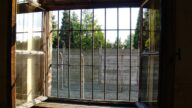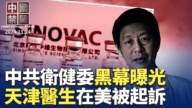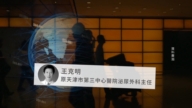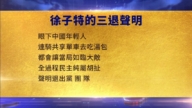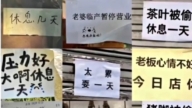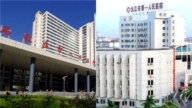【新唐人2013年01月22日讯】近期,国内外房产市场的一连串变动,引发了世界媒体的关注,一方面中国各地出现了大规模的抛售豪宅现象,另一方面,美国、加拿大的房产被疯狂抢购。同时,美、加海关频频缴获华人大批现金,经调查,大部分是作为购买房产。评论人士认为,这一系列事件的始作俑者,就是急于转移赃款的贪官。
近一段时间,美国、加拿大的楼市突然涌入大量中国投资客,他们购房的速度之快、数量之多、手笔之大,迅速引起了国际媒体的关注。
加拿大温哥华 H&R Block 会计师:“因为国内来买房子的人 ,他主要是,一种是投资企业家,另外一部分就是贪官那种,他反正(钱)来的很容易,不是很在乎这个钱的多少,对他来说,钱只是个数字的问题了,投多少都无所谓。”
据加拿大媒体报导,加拿大多伦多市房地产公司职员透露:“有些中国投资客甚至不用亲自来就定了35套公寓,他们只是看看图片,就签支票成交”,并且这样的情况还在继续发生。美国佛罗里达州的房产也全部被中国富豪们买光,甚至导致当地一度出现购房紧张。
美国俄勒冈州房地产经纪人王先生:“中国人肯定买了很多房子,跟我就很多客户买了房子,现在还有很多中国人在找我买房子,现在就是没有房子给他们买。”
H&R Block会计师:“他就是都看这种豪宅,对一般的公寓房,他都不是太感兴趣的,就是投资比较好的房子。对他来说钱来的太容易了,对贪官的话,他买得起容易,他不用出去,觉得不安全,所以他就投多套,至于投了之后住不住都是另外一回事。”
与美、加两国购房热相反的是,自去年年底开始,中国各地出现了大规模房产抛售现象,而售房业主竟然有60%持匿名或假名。
据北京的《经济观察报》引述中纪委内部报告指称,由于全国住房信息即将联网,民间对官员财产申报或公开的呼声日益高涨,造成中共各地官员急于抛售房产,而且抛售的房屋大多为豪宅、别墅,业主则多为国家公职人员或国企高管。
一边是大量抛售,一边是疯狂购买,不难看出中共官员们,正在急于将他们的资产转移。
独立评论员李善鉴:“国内现在贫富分化很严重,尤其是贪污腐败这个程度其实是相当严重的。也就是说,很多人他钱的来源、那个资产是有问题的,资产有问题他就需要把它转移出去、保护起来、需要把它洗白了等等。”
据美国《华尔街日报》报导,最近一段时间,美、加边境因华人携带巨额现金未申报而遭扣留的案件大量增加。而这大部分现金用途是为了投资美国与加拿大楼市。
主要负责跨境金融交易的多位现任和前任加拿大官员也表示,中国人带入加拿大的现金越来越多。
李鉴善认为,除了中共贪官转移财产,大陆民众对中国经济和社会政治局势的不安,是造成资金外流的另一个因素。
李鉴善:“第二个就是国内的这些有钱人,即使他的资产没有问题,是他对国内的政治经济前景其实都是非常担心的,换句话说就是现在国内这种情况,因为它整个经济应该说是一种畸形的发展,这种贫富分化的发展方式,造成整个这个社会十分不稳定,很多在这个体制内的人他看不到希望,所以他也要给自己找一个出路,他看不到很稳定的前景,他就希望找到这么一个避风港吧!”
据中纪委通报,2012年大陆非法资金外流已突破一万亿美元。2013年的非法资金外流规模,将达到一万五千亿美元。
采访/刘惠 编辑/张天宇 后制/李月
CCP Officials Rush to Laundry Assets Overseas
Recently, a series of changes in China and overseas’
real estate markets drew attention from the world.
Luxury houses are being sold off
in various parts of China.
On the other hand, customers from China are eagerly
buying properties in the U.S. and Canada.
Meanwhile, U.S. and Canada customs keep catching
Chinese with large amounts of cash, mostly for purchasing real estates, investigations show.
Commentators think these events are due to CCP’ (Chinese
Communist Party) officials rushing to laundry assets abroad.
Recently, U.S. and Canada’ real estate markets
suddenly saw an influx of Chinese investors.
The hurriedness, large quantities and high prices of their
purchases quickly caught the international media’ attention.
Staff, H & R Block, Vancouver, Canada: “Chinese buyers
are mainly investment entrepreneurs and corrupt officials.
Their money come easy. They don’t really care
about the price. To them, money is just a number.”
Canadian media published a statement of a real estate
company’ staff member in Toronto, Canada.
It said, “Some Chinese investors booked 35 apartments
without even coming to take a look.
They looked at the pictures only and signed checks…
and this continues to occur.”
Real estate properties in Florida are almost all sold out
to China’s “rich," and once led to a home purchase’ panic.”
Mr. Wang, Oregon realtor: “Chinese bought many houses.
I myself have many transactions done with them,
and a lot of customers want to buy from me.
But there is not a house on the market.”
H&R Block Staff: “They all look at luxury houses.
They are not interested in plain apartments.
They want good investment. To them money comes so easy.
Corrupt officials do not need to leave China, as it is not safe.
They buy houses. Whether they will live in them or not
is another matter.”
Contrary to U.S. and Canada, large-scale real estate sell-off
happens in various parts of China since the end of last year,
with 60% of the owners using anonymity or pseudonyms.
Beijing’s Economic Observer quoted an internal report
of the Central Committee for Discipline Inspection (CCDI).
It stated, housing information is going to be available online,
with growing demand to declare officials’ properties.
Thus CCP’s local officials
are eager to sell their properties.
Most properties on the market are luxury mansions and villas,
and many belong to public officials or state enterprise CEOs.
Thus, the massive selling in China and fast buying overseas
make obvious the CCP officials’ eagerness to transfer assets.
Li Shanjian, Independent commentator: “There is
a serious gap between the poor and the rich in China.
Especially the degree of corruption is extremely serious.
Many people’s source of money is questionable.
So they want to transfer the assets,
laundry and protect them."
According to U.S. Wall Street Journal, there is a substantial
increase of cases recently, where Chinese carry large amounts of cash through the U.S. and Canada customs.
Most of them want to invest in the real estate market
in the U.S. and Canada.
Mainly former and current Canadian officials responsible
for cross-border financial transactions expressed that Chinese are bringing in more and more cash into Canada.
Li Shanjian thinks in addition to corrupt officials transferring
properties, some Chinese people feel insecure over China’s economic and socio-political situation.
This is another factor leading to capitals’ outflow.
Li Shanjian: “The second reason is that rich people in China,
even without assets issue, are worried about the political and economic prospects in China.
Because the economy as a whole is distorted,
and the division between rich and poor causes instability,
many people cannot see hope in this system, so they want
to find a way-out, they want to find a safe haven!"
CCDI stated that China’s illegal capital outflow has exceeded
$1 trillion in 2012, and will reach $1.5 trillion in 2013.




